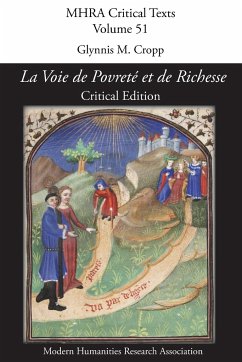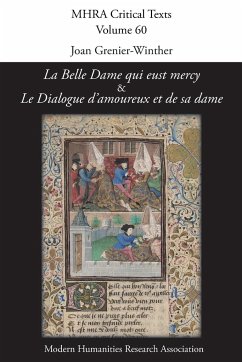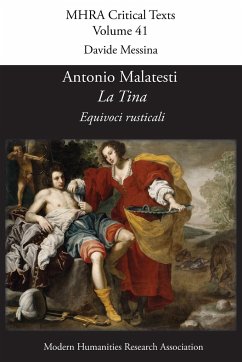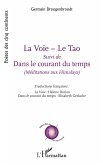The allegorical dream-vision poem, La Voie de Povreté et de Richesse, has been known mainly from its incorporation in Le Mesnagier de Paris (1392-94), an anonymous compilation of advice on good living and household management. Composed as an individual work by Jacques Bruyant, probably about fifty years earlier, the poem has now been edited on the basis of the text in the manuscript Paris, Bibliothèque nationale de France, fr. 1563, fols 203r-221r. It is a first-person account of the dream of a newly-wed husband, who worries about the financial consequences of marriage and the threat of poverty. In long didactic monologues, allegorical figures (Raison, Entendement, and Barat) address the protagonist. He receives the choice of two pathways, one leading to Poverty, the other to Riches. He chooses the path of Diligence, paved with Perseverance, and reaches the château de Labour, for the solution to his problem lies in working to gain sufficiency. In 2634 verses, Jacques Bruyant combined the protagonist's dream and return home to his credulous wife, with allegorical didactic discourse, and description of work experience. Common sayings and stock pieces, such as an account of the Seven Deadly Sins, are included. Pierre Gringore's Le Chasteau de Labour, first printed in Paris in 1499, is an adaptation of the poem, marking continued interest in the subject in the fifteenth century. Glynnis Cropp, Professor Emeritus and Honorary Research Fellow in the School of Humanities, Massey University, Palmerston North, New Zealand, has research interests and publications in medieval French and Occitan literature, especially in the field of the vernacular translations of Boethius's Consolatio Philosophiae.
Hinweis: Dieser Artikel kann nur an eine deutsche Lieferadresse ausgeliefert werden.
Hinweis: Dieser Artikel kann nur an eine deutsche Lieferadresse ausgeliefert werden.








